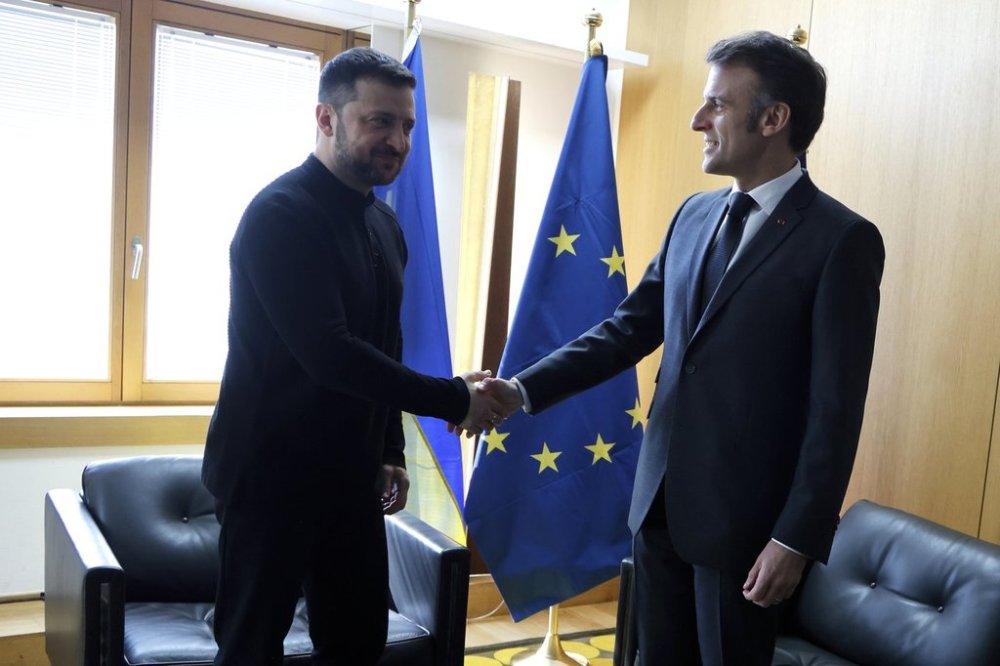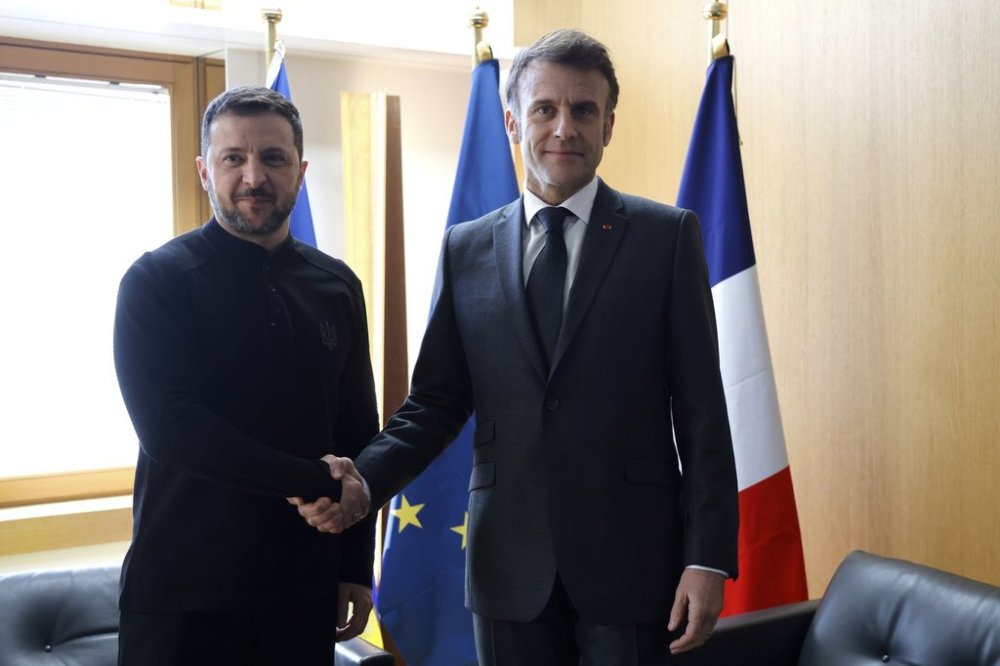Poland and Baltic nations welcome Macron’s nuclear deterrent proposal
Advertisement
Read this article for free:
or
Already have an account? Log in here »
To continue reading, please subscribe:
Monthly Digital Subscription
$0 for the first 4 weeks*
- Enjoy unlimited reading on winnipegfreepress.com
- Read the E-Edition, our digital replica newspaper
- Access News Break, our award-winning app
- Play interactive puzzles
*No charge for 4 weeks then price increases to the regular rate of $19.00 plus GST every four weeks. Offer available to new and qualified returning subscribers only. Cancel any time.
Monthly Digital Subscription
$4.75/week*
- Enjoy unlimited reading on winnipegfreepress.com
- Read the E-Edition, our digital replica newspaper
- Access News Break, our award-winning app
- Play interactive puzzles
*Billed as $19 plus GST every four weeks. Cancel any time.
To continue reading, please subscribe:
Add Free Press access to your Brandon Sun subscription for only an additional
$1 for the first 4 weeks*
*Your next subscription payment will increase by $1.00 and you will be charged $16.99 plus GST for four weeks. After four weeks, your payment will increase to $23.99 plus GST every four weeks.
Read unlimited articles for free today:
or
Already have an account? Log in here »
Hey there, time traveller!
This article was published 06/03/2025 (259 days ago), so information in it may no longer be current.
BRUSSELS (AP) — Poland and Baltic nations welcomed Thursday a proposal by French President Emmanuel Macron to launch talks about using France’s nuclear deterrent to protect the continent from Russian threats, a move Moscow quickly dismissed as “extremely confrontational.”
The comments came as Ukrainian President Volodymyr Zelenskyy joined European Union leaders in Brussels for an emergency summit on defense and security.
On Wednesday, Macron said he has decided to open a “strategic debate” on using France’s nuclear deterrent to protect European allies amid concerns over potential U.S. disengagement. The French president described Moscow a “threat to France and Europe,” in a televised address to the nation.

France is the only nuclear power in the European Union.
Kremlin spokesman Dmitry Peskov said Thursday Macron’s speech was “extremely confrontational.”
“One can conclude that France thinks more about war, about continuing the war,” he said during a regular call with journalists.
Russian Foreign Minister Sergey Lavrov echoed Peskov, saying during a news conference in Moscow that Macron’s comments were a “threat” against Russia.
Poland praises a “significant” proposal
In Brussels, several eastern European nations welcomed Macron’s move.
Poland’s Prime Minister Donald Tusk, whose country holds the EU’s rotating presidency, said “we must seriously consider this proposal.”
He noted that “as always, the details matter, but France’s willingness in this regard is very significant.”
Baltic nations also showed interest in Macron’s offering as they push for more defense spending by EU countries to avoid any future aggression by neighboring Russia.
Lithuania’s President Gitanas Nausėda praised a “very interesting idea.”
“We have high expectations because a nuclear umbrella would serve as really very serious deterrence towards Russia,” Nausėda said.
Latvian Prime Minister Evika Siliņa called the French proposal “an opportunity to discuss,” stressing that more time was needed to have talks with other European allies and at the domestic level.
France has an estimated 290 nuclear warheads
The Federation of American Scientists, or FAS, says France maintains the world’s fourth largest nuclear arsenal, with an estimated 290 nuclear warheads.
France’s arsenal consists of ballistic missiles deployed on its nuclear-powered submarines, which represent approximately 80% of the country’s warheads, and air-launched cruise missiles carried by long-range bombers.

Although France is a member of NATO, its nuclear forces are not part of the alliance’s integrated military command structure.
The FAS estimates the United States and Russia possess over 5,000 warheads each, all together representing approximately 88% of the world’s total inventory of nuclear weapons. They are followed at a distance by China.
The United Kingdom, which is no longer an EU member but is working on restoring closer ties with the 27-nation bloc, also has nuclear weapons.
“In terms of extending our nuclear deterrent or using it to protect other European nations –- we already do,” said Tom Wells, a spokesman for British Prime Minister Keir Starmer. “The U.K. already commits its nuclear forces to NATO, helping to safeguard European Euro-Atlantic security.”
Many countries count on U.S. umbrella
During the Cold War, the U.S. nuclear umbrella was aimed at ensuring that allies, especially NATO members, would be protected by American nuclear forces in case of a threat. That’s one of the reasons why many nations in Europe and across the world haven’t pursued their own nuclear arsenals.
Last month, Germany’s election winner and likely future chancellor Friedrich Merz called for a discussion on “nuclear sharing” with France. Germany is among the European countries that host U.S. nuclear weapons under NATO’s nuclear sharing policy,
Outgoing Chancellor Olaf Scholz expressed reservations on Thursday in Brussels. In response to questions from journalists, he said the existing NATO system of nuclear deterrence “should not be abandoned.”
Macron said Wednesday any decision to use France’s nuclear weapons would remain only in the hands of the French president.
—-
Associated Press Writers Lorne Cook in Brussels, Jill Lawless in London and Harriet Morris contributed.

